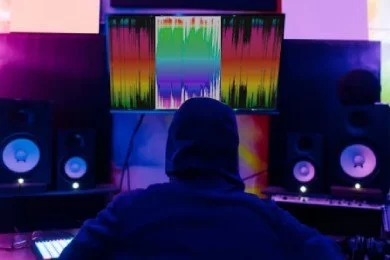
- what-is-music-sampling-and-why-lawsuits-happen
- notable-music-sampling-lawsuits-and-their-impact
- recent-trends-in-sampling-lawsuits
- legal-guidelines-for-artists-and-producers
- how-esplawyers-can-help-protect-your-music
1. What Is Music Sampling and Why Lawsuits Happen
Music sampling involves taking a portion—or “sample”—of a sound recording and reusing it in a different song. It’s a common and often celebrated creative tool in genres like hip-hop, pop, and electronic music. However, using samples without proper legal clearance can lead to serious copyright lawsuits.
Legally, there are two rights at play when it comes to sampling: the copyright in the actual recording (usually owned by a label) and the underlying composition (owned by the songwriter or publisher). If you use any part of either without permission, you risk being sued—even for just a few seconds of audio.
As music streaming and production software have made sampling more accessible, disputes have become more frequent and high-profile. If you're unsure about whether your work might be at risk, ESPLawyers offers strategic copyright guidance tailored for artists and producers.
2. Notable Music Sampling Lawsuits and Their Impact
2.1 The Grand Upright v. Warner Case (1991)
This case set the modern tone for sampling law. Rapper Biz Markie used a sample of Gilbert O'Sullivan’s "Alone Again (Naturally)" without permission. The court famously began its opinion with “Thou shalt not steal” and ruled against Biz Markie, emphasizing the importance of licensing. The case changed how the music industry viewed sampling and led to stricter enforcement.
2.2 The Marvin Gaye Estate v. Robin Thicke & Pharrell (2015)
While not technically a sampling case, this lawsuit over “Blurred Lines” opened the door to lawsuits based on “feel” or “vibe.” The Gaye estate argued that the song copied the overall groove of “Got to Give It Up.” A jury awarded $5 million in damages. This case sent shockwaves through the music industry and made some producers rethink how much inspiration they could safely draw from existing works.
2.3 Juice WRLD and “Lucid Dreams” (2019)
Juice WRLD’s hit "Lucid Dreams" heavily sampled Sting’s "Shape of My Heart." While Sting gave the song post-release approval, he claimed 85% of the royalties. This sparked public debate on fairness and control in the sampling space. Even approved samples can have serious revenue consequences if not negotiated properly.
3. Recent Trends in Sampling Lawsuits
3.1 Increased Litigation in Independent Music
Major labels once dominated sampling lawsuits, but today, independent artists and producers are increasingly targeted. Digital fingerprinting tools used by rights holders can automatically detect unlicensed samples on platforms like YouTube or Spotify, leading to takedown notices or lawsuits—even for low-stream songs.
3.2 Micro-Samples Under Scrutiny
Gone are the days when you could “get away” with using just a second or two of someone else’s music. Courts have increasingly ruled that even brief, modified samples require clearance. This trend has challenged the myth of the “fair use” defense in music sampling.
3.3 AI and Reconstructed Samples
Producers now use AI tools to recreate sounds from famous songs without directly copying the original recordings. While this might avoid one layer of infringement, the underlying composition still remains protected. This gray area is generating new legal debates—and, inevitably, lawsuits.
4. Legal Guidelines for Artists and Producers
4.1 Always Clear Your Samples
If you're using a recognizable sound, lyric, or melody—clear it. This means contacting both the master recording rights holder and the publishing rights holder. Skipping this step can turn a hit single into a financial nightmare.
4.2 Consider Sample Libraries
Royalty-free sample packs are a great option, especially for indie artists. They provide pre-cleared loops and sounds. Just make sure to read the license terms carefully—some packs restrict use in commercial releases.
4.3 Get Agreements in Writing
If you're collaborating or using someone else's beat, ensure contracts are in place before release. Verbal agreements don’t hold up well in court. This includes clearance, revenue splits, and indemnification clauses.
Need help drafting or reviewing sample clearance agreements? ESPLawyers works directly with musicians and producers to protect their creative output and avoid expensive legal mistakes.
5. How ESPLawyers Can Help Protect Your Music
5.1 Pre-Release Legal Audits
Before uploading your next track, get a legal opinion on whether any elements put you at risk. ESPLawyers offers pre-release audits, identifying possible sampling issues before they become public legal problems.
5.2 Sample Clearance Negotiation
Negotiating sample clearance isn’t just about asking for permission—it’s about structuring fair deals. Our team helps negotiate favorable terms, protect your royalties, and draft enforceable licensing contracts.
5.3 Defense and Litigation Strategy
Already received a takedown notice or cease-and-desist? ESPLawyers can assess the claim, respond on your behalf, and defend your creative work if necessary. From DMCA disputes to copyright infringement lawsuits, we handle complex sampling cases with skill and industry insight.








